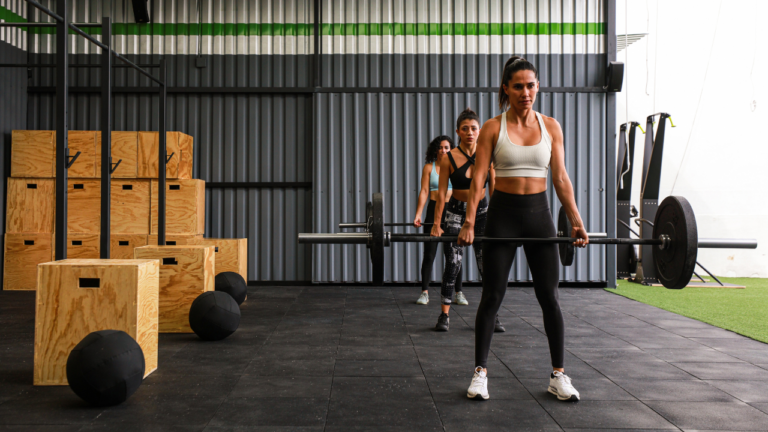How to Choose the Right Nutrition and Fitness Advice for Women’s Health, Weight Loss, and Strength Training

Navigating the vast world of nutrition and fitness advice can feel overwhelming, especially when it comes to women’s health, weight loss, and strength training.
With so many competing voices, it’s challenging to know what’s accurate, sustainable, and evidence-based. Here’s a guide to help you sift through the noise and make informed choices about your health and fitness.
1. Look for Evidence-Based Recommendations
When you’re assessing nutrition or fitness advice, it’s essential to start with a foundation of evidence-based practices. Look for recommendations that are supported by studies and data, ideally from reputable sources like peer-reviewed journals, government health organizations, or certified fitness and nutrition professionals. Here’s a quick breakdown of what to look for:
- Scientific References: Quality advice will often reference studies or acknowledge current research trends.
- Professional Credentials: Seek advice from professionals who hold certifications from credible institutions (e.g., Registered Dietitian (RD), Certified Strength and Conditioning Specialist (CSCS), or Certified Personal Trainer (CPT)).
- Long-Term Success Rates: Be cautious of extreme diets or fitness regimes promising quick fixes. Sustainable advice often prioritizes gradual, long-term results over rapid but potentially unsustainable changes.
2. Consider the Unique Aspects of Women’s Health
Women’s bodies go through hormonal fluctuations, and life stages like pregnancy and menopause impact physical performance, energy needs, and recovery. Here are some key considerations:
- Iron and Calcium Needs: Women are at a higher risk for iron and calcium deficiencies due to menstrual blood loss and hormonal changes. Including iron-rich foods and calcium sources or considering supplementation can be beneficial.
- Bone Health and Muscle Mass: Strength training is especially crucial for women because it supports bone density, which naturally declines with age, and builds muscle to support a healthy metabolism.
3. Align Your Goals with Your Approach
Your approach to nutrition and fitness should align with your personal goals. Here’s a breakdown based on common objectives:
Weight Loss
- Caloric Deficit, Not Starvation: Weight loss requires a caloric deficit, but extreme calorie restriction can harm metabolism and muscle mass. Aim for a modest deficit, usually 300-500 calories less than your daily needs, for sustainable results.
- Protein Intake: Prioritizing protein helps preserve muscle during weight loss. Studies suggest that women aiming for fat loss should aim for around 1.6-2.2 grams of protein per kilogram of body weight.
- High-Volume, Low-Calorie Foods: Eating plenty of vegetables, lean proteins, and high-fiber foods can help you feel full while staying in a calorie deficit.
Muscle Gain and Strength Training
- Progressive Overload: To build muscle and strength, you need to gradually increase the demands placed on your muscles, either by increasing weights, reps, or the intensity of your workouts.
- Protein and Carb Balance: Carbohydrates fuel workouts, while protein helps with muscle repair. Women focusing on muscle gain often benefit from a diet with about 40-50% carbs, 25-35% protein, and the rest from healthy fats.
- Recovery Time: Strength gains happen during rest, so include rest days and listen to your body. Overtraining can lead to injuries, especially for women, who are statistically more prone to joint injuries.
4. Be Cautious with Fad Diets and Extreme Exercise Programs
Fad diets and extreme workout programs may promise dramatic results but can often do more harm than good. Here are a few red flags:
- Elimination of Entire Food Groups: If a diet recommends cutting out entire food groups (like carbs or fats) without medical necessity, it may lead to nutrient deficiencies and unsustainable habits.
- Excessive Cardio for Weight Loss: Cardio can support heart health, but overemphasis on cardio, especially without adequate strength training, can lead to muscle loss and burnout.
- Programs Promising Quick Results: Sustainable fitness and nutrition changes happen gradually. Any program that guarantees drastic results in a short time may rely on unsustainable practices that are hard to maintain in the long term.
5. Prioritize Mental Health and Body Positivity
Healthy living is about more than just physical fitness; mental well-being is equally important. Focusing on realistic, positive goals rather than perfection can help prevent burnout and maintain a positive relationship with exercise and nutrition. Fitness and nutrition should enhance your life and not be a source of stress or guilt.
6. Tune into Your Body’s Feedback
No one-size-fits-all approach exists in fitness and nutrition. Pay attention to how your body responds to different foods, exercises, and recovery routines. Keeping a journal or using an app to track your energy levels, mood, and progress can help you identify what works best for you over time.
7. Seek Support from a Community or Professional
Having support—whether from friends, an online community, or a certified coach—can keep you motivated and accountable. Many women find that working with a coach or joining a group program (especially one tailored to women’s health) provides the structure and support needed to stick with a plan.
Final Thoughts
Navigating nutrition and fitness advice requires a balance of self-education, critical thinking, and personalization. For women especially, honoring the body’s unique needs at different stages of life, avoiding extremes, and prioritizing sustainable habits are vital.
Focus on sustainable habits, listen to your body, and seek guidance when needed. The best path is one that you can see yourself following in the long term, enhancing your physical and mental well-being.






